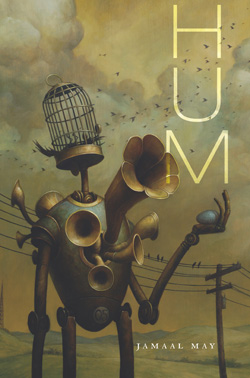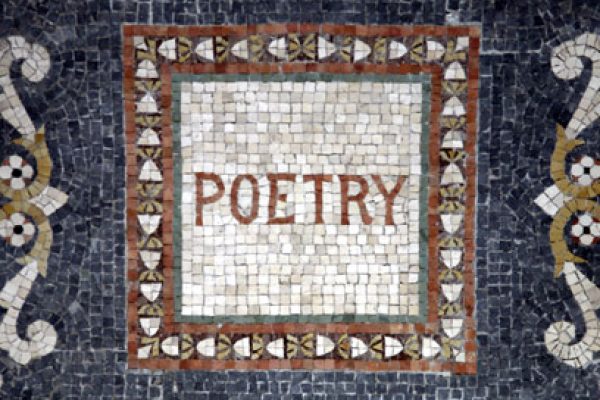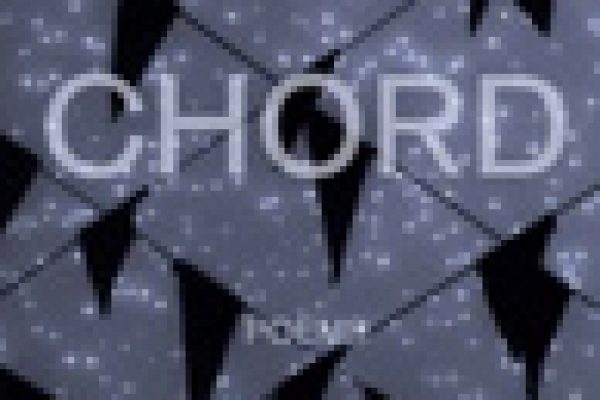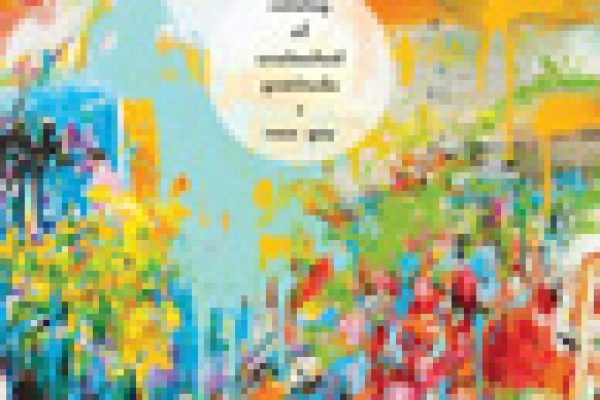HUM
Jamaal May
Alice James books, $15.95 (paper)
 The Detroit of Jamaal May’s debut collection, Hum, is littered with broken glass, shattered vials, and discarded syringes. Noting the empty shells of grand colonials lining the streets and battered cars sitting on cinder blocks, May argues against romanticizing urban decay. He compares Detroit to a battle zone where ball-field dugouts are foxholes and Marines recruit students from local high schools. Aside from a few scattered crows, there is not a bird in sight, unless you count feathers in a puddle or down in a teenager’s winter jacket, his gun tucked underneath. In May’s skilled hands, Keats’s urn becomes a Chinese takeout box and Wordsworth’s abbey spires are belching Zug Island factories. A poet as machinist, May makes art out of found objects, welding his lines with parallel structure and commands. One boy appears with “roof shingles / duct taped to shins and forearms / threading barbed wire through pant loops,” and a lover is made of zinc and copper, her tutu “a nickel-plated half / circle with pleats hammered / one by one.” Hum demands that those left behind by economic upheaval say their piece. To a young boy asked to deny his love of language and join the military, May offers courage: “You stand nameless in front of a tank against / those who would rather see you pull a pin / from a grenade than pull a pen / from your backpack. Jontae, / they are afraid.”
The Detroit of Jamaal May’s debut collection, Hum, is littered with broken glass, shattered vials, and discarded syringes. Noting the empty shells of grand colonials lining the streets and battered cars sitting on cinder blocks, May argues against romanticizing urban decay. He compares Detroit to a battle zone where ball-field dugouts are foxholes and Marines recruit students from local high schools. Aside from a few scattered crows, there is not a bird in sight, unless you count feathers in a puddle or down in a teenager’s winter jacket, his gun tucked underneath. In May’s skilled hands, Keats’s urn becomes a Chinese takeout box and Wordsworth’s abbey spires are belching Zug Island factories. A poet as machinist, May makes art out of found objects, welding his lines with parallel structure and commands. One boy appears with “roof shingles / duct taped to shins and forearms / threading barbed wire through pant loops,” and a lover is made of zinc and copper, her tutu “a nickel-plated half / circle with pleats hammered / one by one.” Hum demands that those left behind by economic upheaval say their piece. To a young boy asked to deny his love of language and join the military, May offers courage: “You stand nameless in front of a tank against / those who would rather see you pull a pin / from a grenade than pull a pen / from your backpack. Jontae, / they are afraid.”








